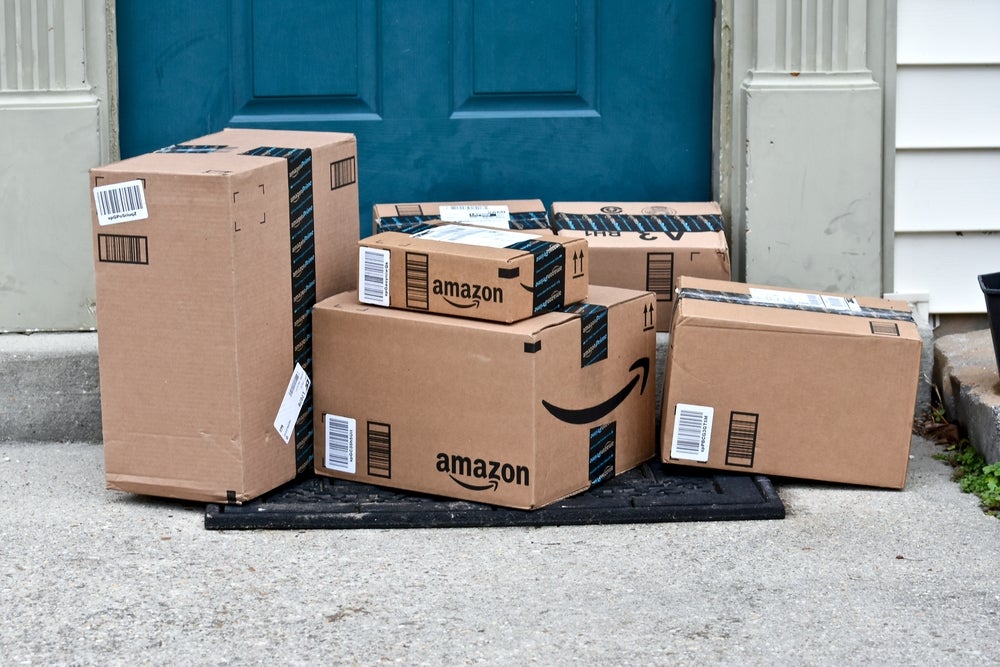In 2019, ecommerce and cloud pioneer Amazon co-founded The Climate Pledge with NGO Global Optimism. Since then, Amazon has become steadily more ambitious, both in its internal climate goals and in rallying more companies to the pledge. In doing so, it validates a core element of what GlobalData describes as a climate feedback loop.
The feedback loop is a largely market-based mechanism in which companies make public commitments to reduce their carbon-based greenhouse gas emissions, the primary cause of global warming. Through such commitments, they establish leadership and gain reputational advantage with customers, partners, and other stakeholders, which drives further action. They recognize that, in the words of Larry Fink, CEO of BlackRock, the world’s largest asset manager, “climate risk is investment risk.”
Amazon Climate Pledge core commitments
In its pledge, Amazon made three core commitments: to be “net zero carbon” across its business by 2040, a decade ahead of the Paris Agreement; to make all Amazon shipments net-zero carbon, half by 2030; and to power its operations with 100% renewable energy by 2025 (accelerating its original 2030 goal).
Through 2020, Amazon and Global Optimism enlisted about 30 signatories to The Climate Pledge, including Best Buy, Infosys, JetBlue, Mercedes-Benz, Microsoft, Uber, and Verizon. It announced 20 new signatories in February 2021, such as IBM and Johnson Controls, and dozens more in April 2021, among them Alaska Airlines, Colgate-Palmolive, Telefonica, Visa, bringing the total to more than 100.
Signatories agree to match Amazon’s commitment to making their businesses net-zero carbon by 2040. They pledge to regularly measure and report their GHG emissions; to decarbonize their businesses by improving energy efficiency, replacing fossil fuels with renewable energy, and reducing materials, among other strategies; and to neutralize remaining emissions with “credible” and “high-quality” carbon offsets.
The quickening pace of enlistment in the Climate Pledge signifies not only that companies around the globe agree that climate action brings reputational advantages but also that they view Amazon as a trustworthy partner. It is not a zero-risk strategy; Amazon has plenty of sceptics, who accuse the company of fuzzy carbon accounting, and critics who complain that Amazon continues to sell cloud services to the fossil fuel industry.
How well do you really know your competitors?
Access the most comprehensive Company Profiles on the market, powered by GlobalData. Save hours of research. Gain competitive edge.

Thank you!
Your download email will arrive shortly
Not ready to buy yet? Download a free sample
We are confident about the unique quality of our Company Profiles. However, we want you to make the most beneficial decision for your business, so we offer a free sample that you can download by submitting the below form
By GlobalDataAlso, neither the Climate Pledge nor the NGO-backed Science-Based Targets initiative (SBTi, the largest and most rigorous carbon-reduction program) includes formal enforcement mechanisms. But enforcement is primarily a regulatory – governmental – function. Both the Climate Pledge and SBTi exist in part because governments have not been effective on climate. It hardly seems fair to criticize them for not being governmental enough.
Demands from the investment world
Something similar is occurring in the investment world, where BlackRock has begun demanding that its portfolio companies develop long-term climate strategies, then voting against the management of companies it deems to have done too little. BlackRock is functioning like a climate regulator, stepping into the gap left by government inaction. Unlike an environmental regulator, however, BlackRock is not telling its portfolio companies to prioritize climate over finances. It’s telling them to prioritize both. After all, if “climate risk is investment risk,” then climate action is smart business.
One more Amazon program deserves mention here: a recent initiative called “Climate Pledge Friendly” to help customers find sustainable products. Amazon says the program now spans more than 75,000 items in the US and EU. The company has partnered with nearly two-dozen third-party certifying organizations and created its own certification “to highlight products that meet sustainability standards and help preserve the natural world.”
Self-serving? Of course. In seeking reputational advantage, being self-serving is a feature, not a bug. Amazon’s 100-plus co-signatories are doing the same thing in highlighting their climate actions.
The critical question about the climate feedback loop is whether it can drive progress fast enough to stave off the worst effects of climate change. But with governments having failed so far, a better question might be: How can we strengthen and accelerate this market-based mechanism? Amazon’s answer: If a company like ours can meet the Paris Agreement ten years early, then any company can.








Related Company Profiles
Johnson Controls International Plc
Colgate-Palmolive Co
Alaska Airlines Inc
Visa Inc
Infosys Ltd